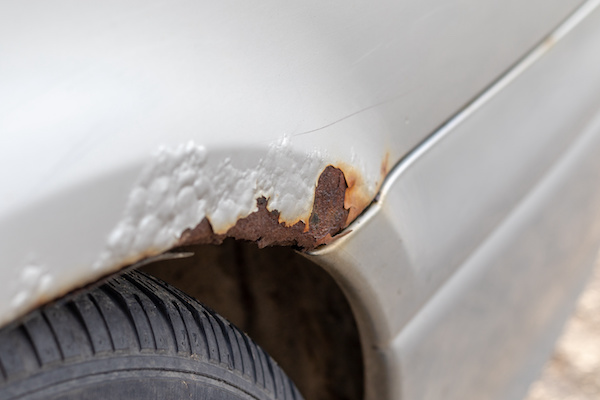Posted on 12/21/2021

On the highway, you're driving your car, likely listening to your favorite tunes, and have the AC blasting. Then the traffic slows down, and you've noticed that your car vibrates. You may be questioning to yourself, "why does my car feel like an angry massage chair?" when you are driving on a smooth road. Read on to see what causes the car to vibrate and why. Most Likely Causes of Car Vibration:Alignment Issues If the front end alignment is off balance, it would cause vibration. Another thing that could cause alignment issues is the wheel could be unbalanced. There could also be suspension issues. Either way, you'll want to get this checked as soon as possible, as it's dangerous driving a car that has either issue. Brake Pad Issues Overtime, the brake pad can be worn out or even damaged. You'll know that it's on its way out when you stop the car, as it will vibrate with squeaking ... read more
Posted on 11/29/2021

If you're always stumped on what gift to get your car-loving friend or family member, you've come to the right place. There is an endless list of possible gifts, but hopefully, several of these ideas will help you get ahead of the holiday shopping rush! Car garbage can: It's so easy to let a pile of trash build up in our vehicles. If you want your loved one to stay tidy, this is a great gift idea. Seat covers: Most people like to eat and drink in their vehicles, which means spills tend to happen. Seat protectors are an excellent way to keep food, drink, and other waste from staining or ruining the seats. They can also make your vehicle look more aesthetic. Air fresheners: Who doesn't love air fresheners? These are great small stocking stuffers. Portable car vacuum: This is an excellent gift for any driver. A portable car vacuum can easily be stored in your car and be able to get into the nooks and crannies of your vehicle. Portable car battery charger: The extreme ... read more
Posted on 10/20/2021

The answer to the title question is, it varies. "On what?" you may ask. Numerous factors can affect the number of miles between each transmission fluid change, and the first deciding factor(s) is your car's make/model/age. To physically inspect your transmission fluid, you have to determine if your car even has a dipstick for it. It is usually located somewhere under the hood, but you can look in the owner's manual if you can't find it. Keep in mind; some newer models will not have this tool. Our shop has a dipstick or other devices to monitor the levels on vehicles without the transmission dipstick. Your owner's manual will also list your vehicle's maintenance schedule, so it will tell you when you need to service your transmission fluid. In some cases, newer maintenance schedules will not mention transmission fluid changes, so owners are often left clueless about it. Even in this situation, it is still a good idea to have a professional ... read more
Posted on 9/27/2021

In many ways, a vehicle is similar to the human body. While your car can't catch a cold or virus, a rust mark is a sign that needs attention. Rust on your vehicle is not always a life or death situation. Its severity depends on various factors, including size and how long it's been there. In some circumstances, rust spots can be considered quick fixes. However, some other issues may require a significant repair. Rust can develop when your vehicle's steel components are placed in an environment with oxygen and moisture for an extended time. The chemical changes will cause the metal to look reddish-brown and deteriorate. Rust will cause the metal to be very brittle and worn. Since your car is mostly made of metal, rust could render internal parts exposed and susceptible to damage. Rust has a specialized chemical origin and is challenging to combat, which is why it's always best to leave it to the professionals for repairs. We've compiled a few ... read more
Posted on 8/23/2021

If you have a new teen driver in your home, you know there will come a day where they will have to practice driving on the freeway. The first time can be scary for most, which is why it's typical for inexperienced drivers only to drive local until they gain enough confidence to venture onto the highway. Being informed and aware can help a rookie driver make a safe transition from short distance to long-distance drives. Here are some words of wisdom from Tom's Auto Center for teens or new drivers to know before operating a car on the highway: #1 - Pick the right time and place If you want to attempt interstate commuting, you must pick the right time and place to practice it. Consider starting on an easy highway that isn't too busy with sufficient lane space. Also, try not to do a test run during rush hour traffic. It'll just add on to the stress. #2 - Start training in the right lane. New drivers should start by sitting in the right lane exclusi ... read more